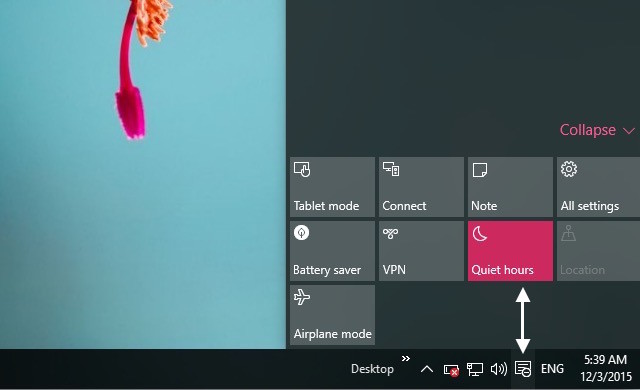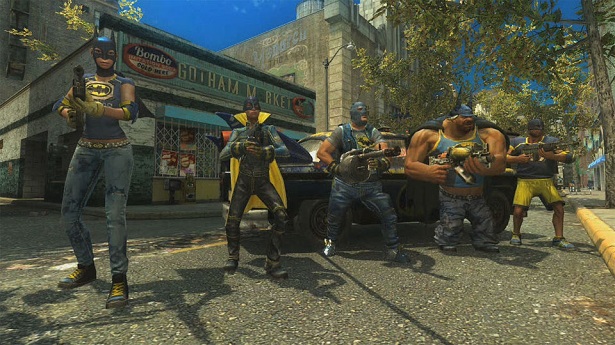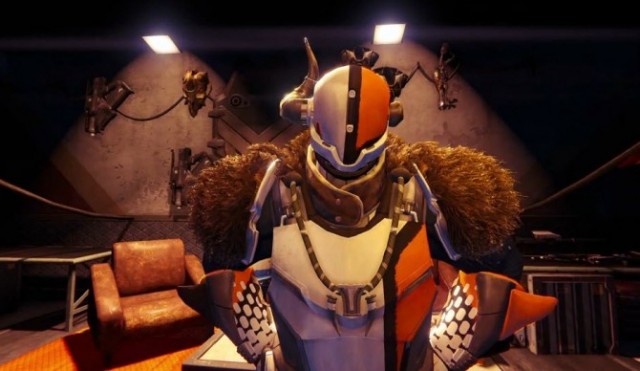

... they lied. There comes a point in Alone in the Dark, about 80% in, where Eden Studios pulls a very cheap trick. It artificially boosts the longevity of a game perilously close to the wrong side of the six hour mark by featuring a root-killing collect-a-thon, similar to Zelda: Wind Waker's Triforce shard hunt. For one brief moment we caught sight of the game we were promised. Then, after a quick spell, it was all over.
Normally we'd find collection quests of this ilk frustrating; but the tedium of driving around Central Park to burn the 'roots of evil' is more than balanced out by some brilliant ideas. For one, the location of every root is marked on your map, so you always know where to go. Once there you'll find one of two things: a small root (in which case you burn it, yawn, and move on) or something to think about. It's these second instances which makes the cumbersome controls and inventory system all worth it.
Arriving at one location, we had to blow a door off its hinges (nearby alcohol bottles meant we didn't have to look far for a bomb) and then descend into an underground tunnel system. A box of glowsticks saved our life when we used it to illuminate the bottom of a shaft and scare off the black, instant-kill goo that hides in the shadows. We soon found our root, hidden behind a wall on the other side of a subterranean factory. The problem? All the walkways had been destroyed. The solution? Combining a bottle of flammable liquid, some sticky tape, a few bandages and a cigarette lighter.
Hurling our impromptu Molotov cocktail onto a hanging tank we activated a nearby conveyor belt which moved our explosive nearer to the root. Ten seconds later, as it burned to death, we resumed our search for Central Park's other roots, having fallen in love with Alone In The Dark a little bit more.
These moments of genius aren't just confined to the collection quest, but their impact is greater than that of the puzzles forced upon you. For the majority of AITD's short lifespan, you'll be following a carefully scripted path. The episodic structure pushes the action forward at an impressive pace, tying together otherwise incoherent strands of story. And while it's rare you'll ever want to skip ahead, it's nice to have the option to do so.
But the much touted storyline isn't quite as impressive as we were led to believe. The mystery is certainly intriguing, but half of the plot development is forced upon you - randomly arriving as a series of text messages from your companion. As subtle as a sledgehammer, this ham-fisted attempt at revealing the story shatters the illusion the rest of the game tries so hard to conjure up. And the least said about the utterly damp squib of an ending the better...
Thankfully some of the issues we fretted over in previews have been addressed. Not all of them - we experienced one crash and a few glitchy areas - but the majority are sorted. Breathe a sigh of relief, for there's nothing actually game-breaking to be found here. Silly bugs that shouldn't have gotten past the testers? Undoubtedly, but on reflection they're generally pretty minor.
Even with its issues you can really see where those four years went. As much as Alone In The Dark deserves to be criticised for its problems, it equally deserves to be lavished with praise for some outstanding ideas and set-pieces. A gracious failure, AITD should stand as a lesson for other developers to see what they should be striving for.
Jun 24, 2008




 3 Quick Gmail Tips to Make Your Inbox Easier to Use
3 Quick Gmail Tips to Make Your Inbox Easier to Use Gotham City Impostors Multiplayer Guide
Gotham City Impostors Multiplayer Guide Destiny: The Taken King, How To Beat This Weeks' Court Of Oryx Tier 3 Boss: Kagoor
Destiny: The Taken King, How To Beat This Weeks' Court Of Oryx Tier 3 Boss: Kagoor Paleto Score Setup Guide in Grand Theft Auto V
Paleto Score Setup Guide in Grand Theft Auto V Bloodborne: The Old Hunters - How to Get the Beast Cutter
Bloodborne: The Old Hunters - How to Get the Beast Cutter